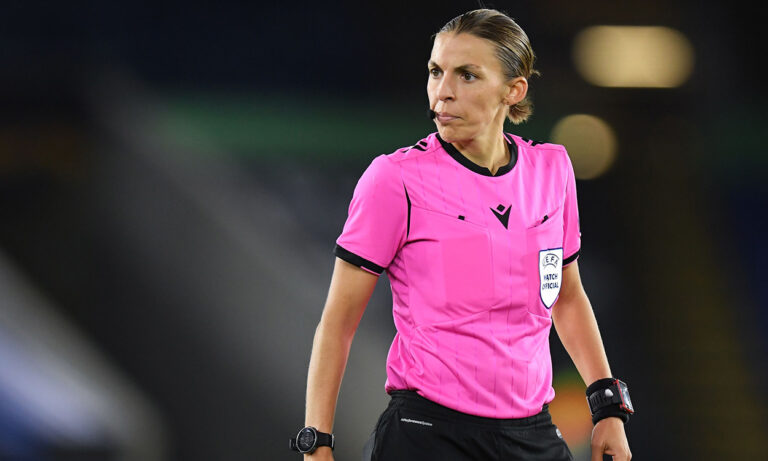Stéphanie Frappart to become first ever female referee at men’s World Cup match
The high-profile French referee will be taking charge of the Costa Rica versus Germany game taking place on Thursday 1 December during Qatar’s 2022 FIFA World Cup.
The 38-year-old will be joined by the assistant referees Neuza Back of Brazil and Mexico’s Karen Díaz Medina for the crucial game, FIFA announced on Tuesday 29 November. Frappart will mark another milestone in her career at the Al Bayt Stadium, having previously refereed a men’s World Cup qualifier in March, a men’s Champions League game in 2020, the 2019 Uefa Super Cup final, and matches in Ligue 1.
Frappart featured as the fourth official during Mexico’s goalless draw with Poland in Group C. Two other female referees—Rwanda’s Salima Mukansanga and Yamashita Yoshimi of Japan—were also included in FIFA’s pool of World Cup officials. Along with Back and Díaz Medina, US official Kathryn Nesbitt was also called up as the offside specialist in the video review team.
Before the tournament began, the high-profile football expert shared that she hoped the inclusion of female referees in Qatar would “make things happen” on a broader level. “It’s a strong sign from FIFA and the authorities to have women referees in that country,” she said.
Germany is currently in need of a win this Thursday to have any hope of not repeating its failure in Russia in 2018 and crashing out at the group stage. Football coach Hansi Flick’s squad is currently last in Group E following a surprising defeat to Japan in its opening game.
While a late equaliser from Niclas Füllkrug secured an invaluable point against Spain in its second match, die Mannschaft still has a lot to do in the final group stage game—with even a win not enough to guarantee qualification.
Even if the team does end up beating Costa Rica, the four-time world champions still have to hope Spain beats Japan. Let’s wish for Germany that history stays on its side—the country has won six of its eight World Cup matches against CONCACAF nations, while Costa Rica has won just one of its last 11 such games against European sides.






